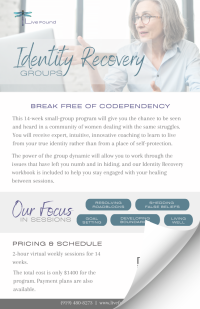Understanding a Good Side to Anger
Acknowledging Anger in Marriages
By the time most couples seek help with their marriage, anger is a profound element of the relationship. It’s common for neither party to acknowledge their own anger, although they can often easily point out the anger within their spouse. Wives might bring up their husband’s outbursts, raging, or controlling behavior. Husbands tend to point out their wife’s “lack” of forgiveness, or their withdrawal and depression. Each of them seems justified in what they’re allowing to brew under the surface without recognizing how much damage their anger is doing.
Gender Differences in Anger Expression
For men, anger tends to be about coercing the world around them to do or be what they want it to be. When an angry outburst seems to make people fall in line, it can create the false sense that “all is well.” Anger is used as a force to control people, to regain or maintain their footing by demeaning or overpowering them. It is outward focused and “power” oriented. In other words, it is used to regain the upper hand.
For women, anger tends to be more inward focused and “relational” oriented. It tends to simmer and stew, because expressing it would potentially further break the relationship in question. They can’t “regain” the relationship by an angry outburst. And, it is often less “acceptable” for women to be angry. Instead, they tend to exhibit depression, anxiety, or psychosomatic symptoms and variations of C-PTSD. This anger is a response to being silenced, gaslighted, belittled, and misjudged.
The Protective Function of Anger
For both men and women, anger is a key building block in their wall of self-protection. It supports defense mechanisms and fuels the façades we wear. Anger can make it very difficult to be authentic and connect to your spouse. The only connection that can happen is to whatever is in front of your shield of self-protection, which is often a very shallow, non-vulnerable self. In being self-protective, you disable the very thing your heart craves: authentic connection.
Recognizing the Positive Aspects of Anger
Anger is not necessarily a bad thing. Anger is an authentic and good reaction to injustice. It informs us that something is going on that needs attention and change. This could be something within ourselves, such as dissonance or unresolved trauma. It could be constantly feeling unsettled about who we are or where we’re going, and frustrated about being so uncertain, complacent, or fearful. Maybe our expectations need to be evaluated, or our perception aligned with reality. Maybe we’re letting others define us, or we’re trying to live their lives for them.
There might be an external force creating chaos or injustice that needs to be addressed. We control much less than we think we can, and circumstances have a way of proving that. People treat us wrongly. We don’t get what we think we deserve. We lose. Our debt overwhelms us. The laundry doesn’t clean itself.
Whether internal or external, we must address the root issues. How we wield our anger makes the difference in whether we build or further destroy the relationships around us.
Evaluating the Impact of Anger
Take some time to evaluate how much anger is impacting your thinking. It may be exhibited as anxiety or depression, obsessive-compulsive tendencies, little tolerance or patience, or as a driving force in an addiction. Do you constantly feel off-kilter, fearful, unjustly treated, misjudged, and misunderstood? Sitting in those emotions without navigating them purposefully or intentionally toward a healthy direction will lead your soul to the kind of anger that diminishes and destroys.
Assessing Anger in Behavior
Evaluate the impact of anger on your behavior. Is your anger propelling you into behaviors that are demanding, punitive, coercive, or manipulative? Are you sarcastic and contemptuous? Is the silence glaring and cold? Both silence and rage break down relationships. Not living congruently as the kind of person you want to be will break down you.
Using Anger for Positive Change
Once you’ve taken a hard look at how much anger is brewing within you, you are much better able to recognize when and where it is negatively impacting your life. And, once you see where it’s going wrong, you can right it. Anger can actually be a good thing! It informs you that something is wrong or unjust. It can help you stay alert to danger and be used to motivate you to reach for something different, or to fight for what is good, right, and true.
Questions to Navigate Anger
Some great questions to ask when you’re angry are: What am I fighting for? What am I fighting against? What’s going on in me and what does that tell me about what I need? How can I better ask for what I really need? Am I trying to control someone else? Am I taking responsibility for controlling myself and managing my own internal world? How can I use boundaries more effectively to invite my spouse into a better connection without losing myself?
The Impact of Healthy Anger Management
The biggest impact of dealing with anger in a healthy way is that while the circumstances might not change, you will be more intentional about navigating them, which translates to feeling less like a victim. You’ll be better able to live your life, not simply fend off everything happening to you. You’ll think more clearly, step more surely, and build relationships more authentically. And, I think you’ll find your heart to be much more at rest.
By understanding the healing role of anger and addressing it thoughtfully, you can transform your relationships and your life. We would love to help! Reach out to us today to schedule a session with one of our expert coaches.


